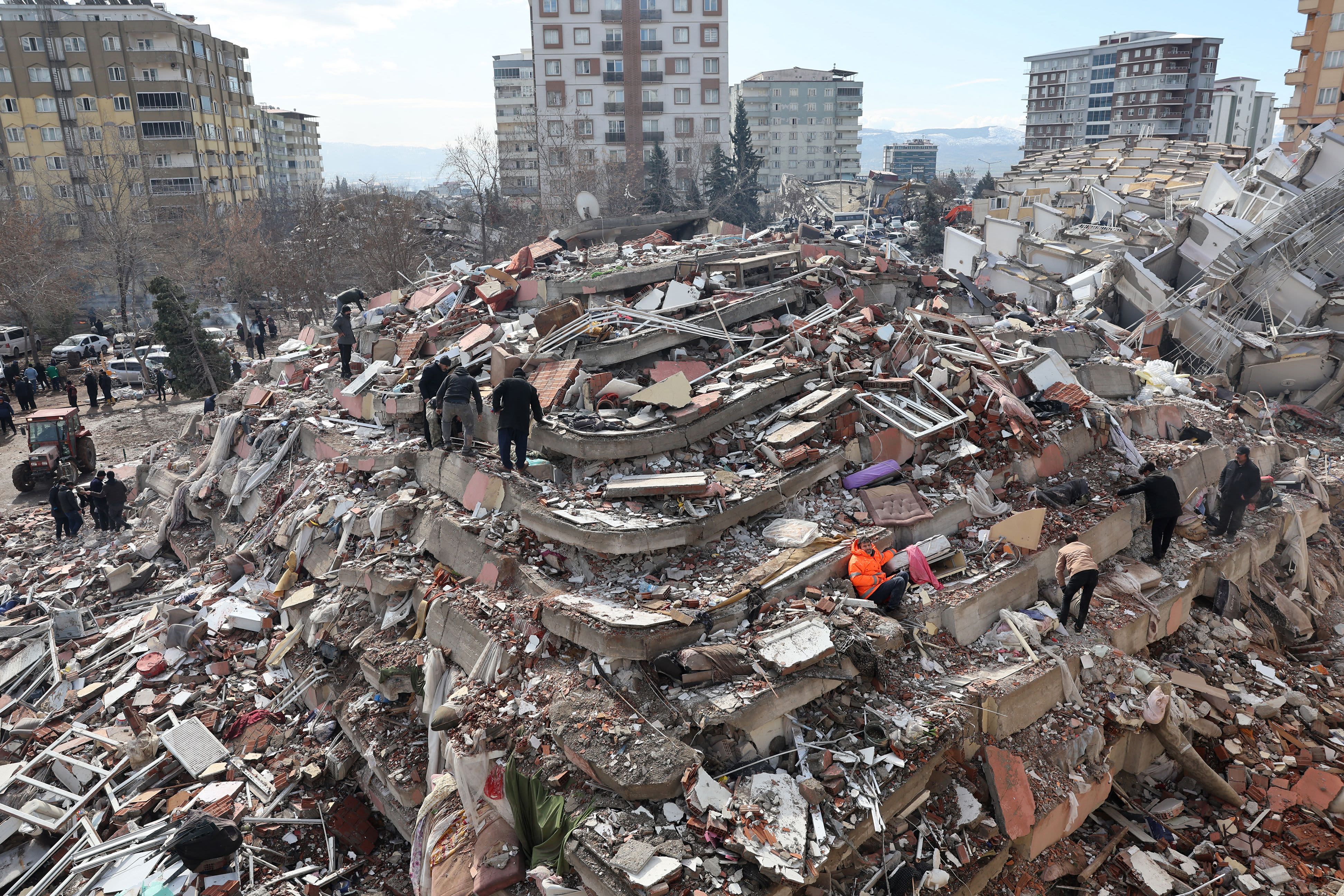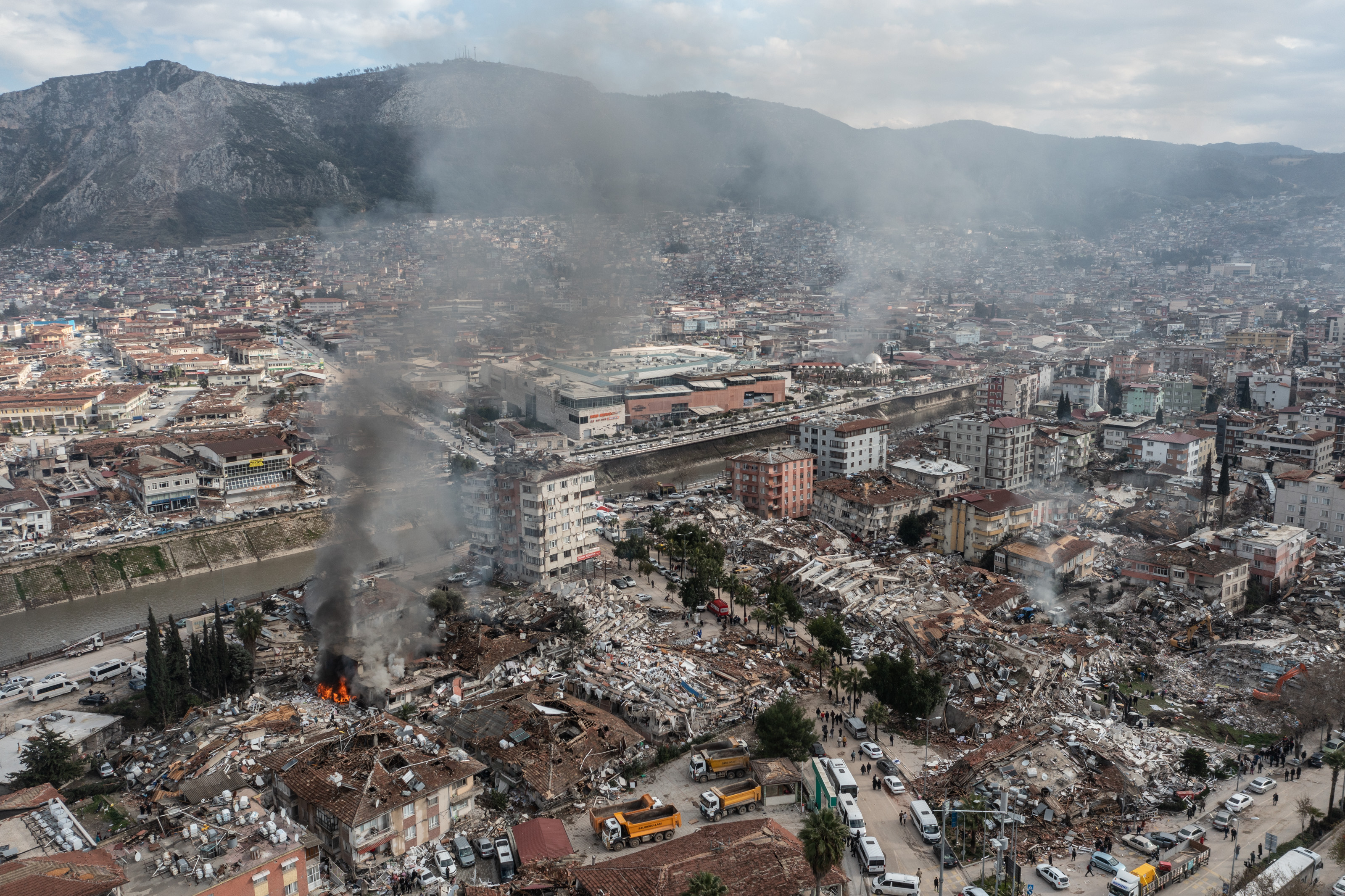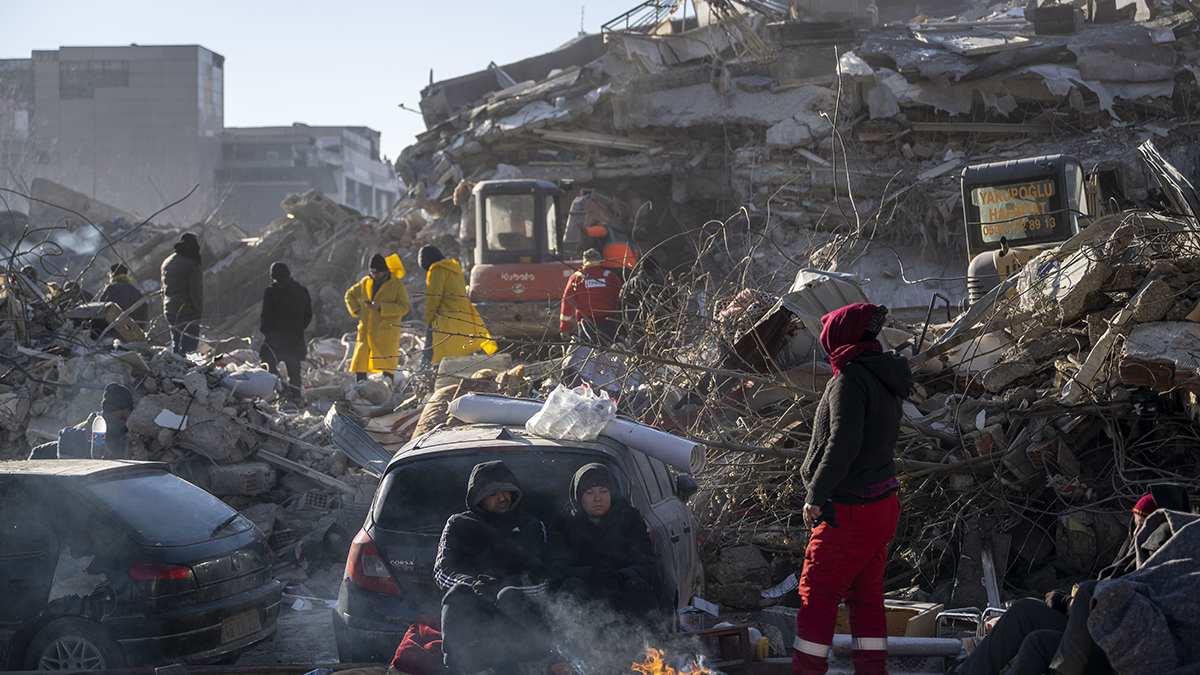A family of four from Queens was among the more than 12,000 people killed in the devastating earthquake in Turkey and Syria, the worst quake to hit the region in the last century.
According to the Council on American-Islamic Relations (CAIR), Burak Firik was with his wife Kimberly and their 1-year-old and 2-year-old sons when the building they were inside collapsed on Monday as a result of the earthquake. They had left their home in Corona and were visiting family in Elbistan.
Firik was a former board member at the New York chapter of CAIR, a nonprofit civil rights and advocacy organization.
"He was a family man, really cared about his family, obviously, and his faith," said CAIR Legal Director Ahmen Mohamed, adding that he will miss his friend's empathy and kindness with community members, calling him a "servant leader" who "loved to give back to those in need."
Get Tri-state area news and weather forecasts to your inbox. Sign up for NBC New York newsletters.
Firik's mother, who was with the family, also died in the collapse. Firik had taken time off from work to visit his sick father in the country. The father was not inside the building at the time it collapsed, and survived the devastation.
"They died together, the children being held in the parents arms. The youngest infant being held by the grandmother," said Mohamed. "They are together still. Their time on Earth is gone, but they are still together. As Muslims we believe in families being reunited in heaven."
In a tragic moment of irony before his death, Firik shared a picture with his wife's family in NYC, showing a collapsed building behind him — adding that they were all safe after the first earthquake.
The family died after the apartment building they had been staying in later collapsed, as they were huddled on the upper floor of the five-story building, according to Kimberly's sister Salma Salazar, who was inconsolable at her home in Queens.
"The only thing that gives me peace is that my brother-in-law and sister were great people and impacted everyone’s lives," Salazar said. "My brother-in-law was really smart, a Columbia graduate, software engineer degree. My sister a biology major, very inspiring."
She said she can't shake the image of her two nephews, Hamza and Bilal.
"We waited in agony until we got an official update," Salazar said. "We had a virtual funeral session because we couldn’t travel."
Neighbors and lifelong friends of all faiths came to a service Thursday night to give comfort to Kimberly’s parents who are Spanish-speaking, from Ecuador.
As per Muslim tradition, the family was promptly buried in Turkey. On Friday, the family will have another funeral service, in Turkish and in English at a Queens mosque.
The death toll from the catastrophic earthquake that hit Turkey and Syria rose to more than 21,000 as more bodies were pulled from the rubble of collapsed homes in the stricken zone, Turkey's disaster management agency said Thursday.
More than 17,600 people died in Turkey and tens of thousands more reported injured, along with 6,444 buildings destroyed, the agency confirmed.
On the other side of the border in Syria, another 3,300 people have been reported to have been killed.
Rescue workers continued to pull living people from the damaged buildings but hope was starting to fade amid freezing temperatures more than three full days since the quake hit.
Turkey's President Recep Tayyip Erdogan visited the especially hard-hit Hatay province on Wednesday, where residents have criticized the government's efforts, saying rescuers were slow to arrive.
Erdogan, who faces a tough battle for reelection in May, reacted to mounting frustration by acknowledging problems with the emergency response to Monday's 7.8-magnitude quake, but said the winter weather had been a factor. The earthquake also destroyed the runway at Hatay's airport, further disrupting the response.
“It is not possible to be prepared for such a disaster," Erdogan said. “We will not leave any of our citizens uncared for.” He also hit back at critics, saying "dishonorable people" were spreading “lies and slander” about the government's actions.
Teams from more than two dozen countries have joined tens of thousands of local emergency personnel in the effort. But the scale of destruction from the quake and its powerful aftershocks was so immense and spread over such a wide area that many people were still awaiting help.
Experts said the survival window for those trapped under the rubble or otherwise unable to obtain basic necessities was closing rapidly. At the same time, they said it was too soon to abandon hope.
“The first 72 hours are considered to be critical,” said Steven Godby, a natural hazards expert at Nottingham Trent University in England. “The survival ratio on average within 24 hours is 74%, after 72 hours it is 22% and by the fifth day it is 6%.”
But still, hope remains. Four days after the quake, a young girl was pulled from the rubble alive on Thursday. Her rescuer collapsed with emotion.
The Associated Press' Mehmet Guzel, Ghaith Alsayed, Suzan Fraser and Zeynep Bilginsoy contributed to this report.




